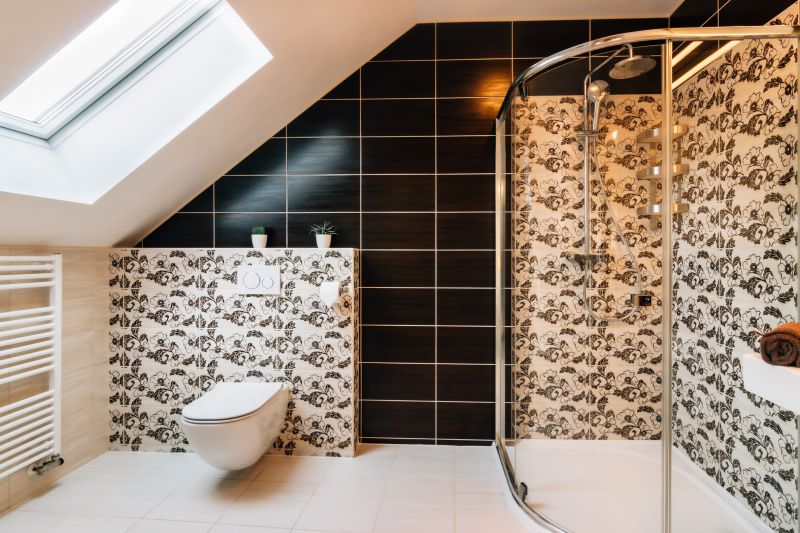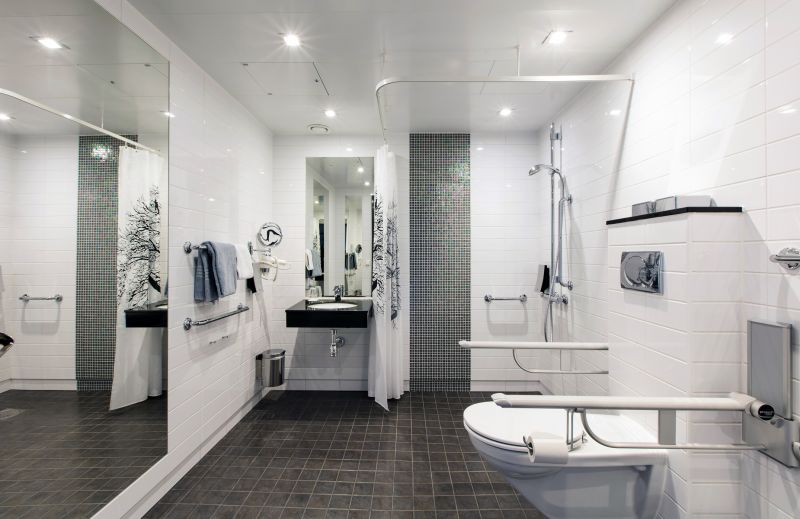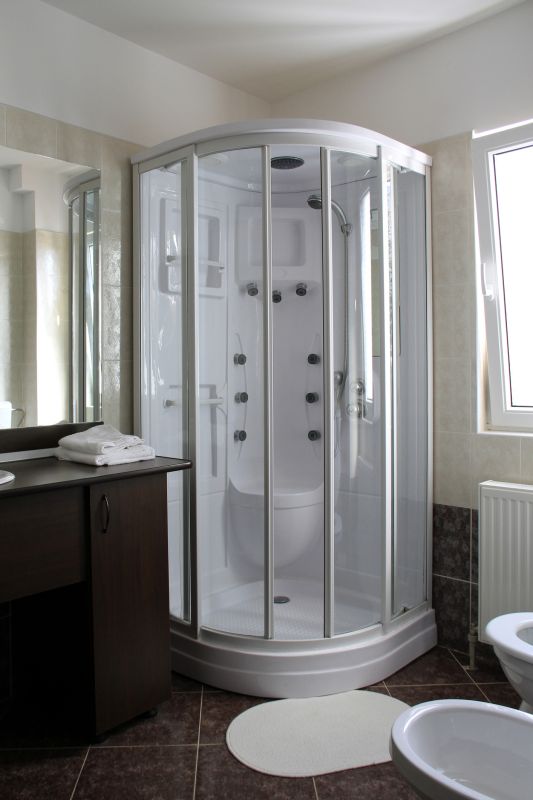Shower Space Optimization
Welcome to Aberdeen Showers
Shop for Shower Space Optimization

Optimizing shower space is a crucial consideration for homeowners aiming to enhance both functionality and aesthetics in their bathrooms. Particularly in regions like Aberdeen, North Carolina, where homes may vary in size and style, understanding the dynamics of shower space can lead to more efficient and enjoyable bathroom experiences. Key considerations include the dimensions of your available space, the materials and finishes that align with your design preferences, and the features that will best meet your household's needs.
When planning to optimize your shower space, one of the first decisions involves assessing the dimensions of your bathroom. This includes measuring the area designated for the shower to ensure that any new installations or modifications will fit seamlessly. It's essential to consider not just the width and length, but also the height, which can influence the type of showerhead and enclosure you select.
Material choice is another pivotal factor. Common materials for shower walls and floors include ceramic tiles, natural stone, and acrylic. Each material has its own set of attributes, such as durability, maintenance requirements, and aesthetic appeal. For example, ceramic tiles are known for their versatility and ease of cleaning, while natural stone offers a luxurious look but may require more upkeep.
Finish selections can significantly impact the overall look and feel of your shower space. Popular finishes include matte, gloss, and textured surfaces. Matte finishes provide a subtle and sophisticated appearance, whereas gloss finishes can make a space appear larger and brighter. Textured finishes offer additional grip, which can be beneficial for safety.
In terms of features, homeowners have a variety of options to consider. These include showerheads with adjustable settings, built-in seating, and storage solutions like recessed shelves or corner caddies. Each feature can enhance the functionality of the shower, catering to different preferences and needs.
Compatibility with existing plumbing and bathroom layouts is another important aspect. It's vital to ensure that any new installations align with the current plumbing system to avoid unnecessary modifications, which can be costly and time-consuming. Consulting with a professional can help determine compatibility and potential adjustments needed.
Upkeep expectations should also be part of the decision-making process. Consider how often you are willing to clean and maintain the shower space. Some materials and finishes require more frequent attention to prevent mold and mildew buildup, while others are designed to be low maintenance.
Features & Options:
- Adjustable showerheads
- Built-in seating
- Recessed shelves
- Corner caddies
- Water-saving fixtures
| Attribute | Typical Range |
|---|---|
| Material | Ceramic, Natural Stone, Acrylic |
| Finish | Matte, Gloss, Textured |
| Dimensions | Varies based on space |
Ceramic Tiles
Versatile and easy to clean, ideal for various styles.
Natural Stone
Offers a luxurious appearance, requires regular sealing.
Acrylic Enclosures
Lightweight and durable, suitable for modern designs.
Maximizing Shower Space: Key Features and Materials
Shop for Maximizing Shower Space: Key and
Essential Elements for a Functional and Spacious Shower
Homeowners in Aberdeen, North Carolina, seeking to optimize their shower space can achieve a harmonious blend of functionality and aesthetics by focusing on key features and materials. The right selection can transform even the most compact bathroom into a luxurious retreat. When considering the upgrade or renovation of a shower area, several critical attributes come into play, including the choice of materials, finishes, and dimensions.
Materials play a pivotal role in both the look and durability of a shower space. Common options include ceramic tiles, glass, and natural stone, each offering distinct advantages. Ceramic tiles are known for their versatility and ease of maintenance, while glass can create an illusion of space, making a small bathroom appear larger. Natural stone, although requiring more upkeep, provides a unique and luxurious finish.

Finishes are equally important, as they contribute to the overall ambiance of the shower area. Matte finishes can offer a sophisticated, understated look, whereas glossy finishes can add brightness and reflect light, enhancing the perception of space. The choice between these finishes should consider the existing bathroom design and personal preference.
Dimensions are crucial when planning a shower space. Homeowners should consider the size of the bathroom and the available space for the shower. Compact showers with sliding or bi-fold doors can save space, while walk-in showers with frameless glass panels provide a modern and open feel. Customizing dimensions to suit the specific layout of a bathroom ensures optimal use of space.
Beyond materials and finishes, features such as built-in shelving and seating can enhance functionality. Shelving provides convenient storage for toiletries without cluttering the shower floor, while seating can add comfort and accessibility. These features should be integrated seamlessly into the design to maintain a cohesive look.
- Built-in Shelving
- Frameless Glass Doors
- Adjustable Showerheads
- Slip-resistant Flooring
- Integrated Seating
Compatibility with existing plumbing and bathroom layout is another consideration. It's important to ensure that the selected features and materials can be easily integrated into the current setup. This includes checking the compatibility of fixtures, drainage systems, and water pressure requirements.
| Material | Finish | Dimensions |
|---|---|---|
| Ceramic Tile | Glossy/Matte | Varies |
| Glass | Clear/Frosted | Customizable |
| Natural Stone | Matte | Customizable |
Maintenance expectations should also guide the selection process. Materials like ceramic and glass are generally easier to clean and maintain, while natural stone may require periodic sealing to preserve its appearance. Selecting materials and features that align with maintenance preferences can ensure the longevity and appeal of the shower space.
Sizing and Selection Criteria for Optimal Shower Design
Shop for Sizing and Selection Criteria for Optimal Shower Design
Choosing the Right Dimensions and Components for Your Shower
Designing an optimal shower space involves careful consideration of various factors to ensure both functionality and aesthetics. Homeowners in Aberdeen, North Carolina, seeking to optimize their shower space should focus on selecting the appropriate dimensions, materials, and finishes. The first step in this process is determining the available space and how it can be best utilized to accommodate a shower that meets your needs.
When it comes to sizing, understanding the spatial dynamics of your bathroom is crucial. Standard shower dimensions typically range from 36x36 inches to larger sizes like 60x36 inches, providing ample room for movement and comfort. For smaller bathrooms, corner showers or neo-angle designs can be an efficient use of space, allowing for a functional shower without overwhelming the room. It's essential to measure the area accurately to avoid any installation issues.
Material selection plays a significant role in the longevity and maintenance of your shower. Popular choices include ceramic tiles, glass, and natural stone. Ceramic tiles are known for their durability and ease of cleaning, making them a practical option. Glass panels can create a sense of openness and are available in various thicknesses and styles, such as clear, frosted, or textured. Natural stone, while aesthetically pleasing, may require more upkeep to prevent staining and water damage.

Finishes can significantly impact the overall look and feel of your shower. Chrome, brushed nickel, and oil-rubbed bronze are common finishes for fixtures and fittings, each offering a distinct aesthetic appeal. Chrome provides a sleek, modern look, while brushed nickel offers a more subdued, traditional appearance. Oil-rubbed bronze can add warmth and character to your shower space. Selecting the right finish should complement the overall design theme of your bathroom.
Compatibility with existing plumbing and bathroom layout is another consideration. Ensuring that the shower design aligns with existing water supply and drainage systems can prevent costly modifications. Additionally, consider the placement of showerheads and controls for ease of use and accessibility. A well-designed shower should provide comfort and convenience without compromising on style.
- Space-efficient corner or neo-angle designs
- Durable ceramic tile or glass materials
- Variety of finishes: chrome, brushed nickel, oil-rubbed bronze
- Compatibility with existing plumbing
- Accessibility and ease of use
Regular upkeep and maintenance are crucial to preserving the functionality and appearance of your shower. Selecting materials and finishes that are resistant to mold and mildew can reduce cleaning efforts. Additionally, ensuring proper ventilation in the bathroom can prevent moisture buildup and extend the life of your shower components.
| Attribute | Options |
|---|---|
| Material | Ceramic Tile, Glass, Natural Stone |
| Finish | Chrome, Brushed Nickel, Oil-Rubbed Bronze |
| Dimensions | 36x36 to 60x36 inches |
Ceramic Tile
Known for durability and ease of cleaning.
Glass Panels
Available in clear, frosted, or textured styles.
Natural Stone
Offers aesthetic appeal but may require more maintenance.



